Every piece of music used in a movie or a television program was written and composed by artists who own the rights to their music. When sinister music plays in the background during a horror film, or when an upbeat ditty plays during a cartoon, someone, somewhere wrote and performed that music. Then the production team which created the film or cartoon reserved the rights to that music to be used in their project. While classical and popular music can be used (often at great expense) to secure the copyrights and licenses to operate in the background of a project, it is more common that the team chooses a track from a production music library instead.
What is a Production Music Library?
Production music catalogs own and control all the copyrights associated with the music available in their library. This is different from the publishers of classical or popular music: those entities will frequently own less than half of the composition copyrights and will need further approval from other artists and producers to grant licensing permissions. Because production music libraries own all the copyrights, they can provide licenses for music without needing the additional consent of composers or artists associated with the work.
Why Use Production Music?
The content from a production music library is paid for in advance, and the music production company owns full licensing rights. This makes it easier for people producing in any medium – radio, television, podcasting, cinema, etc. – to find and use music without having to deal with the complications of acquiring music licensing rights. Commissioning music from classical or popular formats can be arduous and expensive, and frequently takes time, often months or years. Production music, like that available in the libraries of Level 77 Music, sidesteps all those problems with pre-licensed works at a reasonable rate. Additionally, production music is frequently accessible at the click of a button.
Easy Access Via Music Libraries
Production music is not a new phenomenon. In fact, it is almost 100 years old. In 1927 De Wolfe Music created the first set of pre-licensed tracks to use for cinema projects, when movies transitioned from silent films to “talkies.” While the first production music libraries were relatively small, and did not offer a wide range of styles, this is no longer the case. Modern production music libraries frequently have tens of thousands of tracks available with every style and sub-genre of music imaginable. These tracks are readily available for use in any production. Level 77 offers music that can be used in a podcast or radio advertising bed grouped by album and playlist, as well as by theme. This organizational structure makes it easy to find the perfect track for any production requirements, whether that is background music in a movie, or a legally licensed TikTok track.
How Can Production Music Improve a Project?
The music in the background of any project impacts the tone, tension, and vibe of the entire work. Cinematic style music can create tension for important scenes, while television style music can operate as a transitional piece to move from one advertisement to another, or to transition back into regularly scheduled programming. Music becomes perhaps more important when dealing with radio content. Because radio is exclusively audio, the background music becomes more than simply a non-diegetic reference point to control the mood, it typically becomes the centerpiece of the entire project. Level 77 has a variety of radio production beds which can enhance the general feeling of any radio advertising or production project.
Production music is an important part of the film and television industry. The streamlined access to background music can significantly shorten the timetable on any project, and costs pennies on the dollar when compared with securing the rights to popular music tracks. The vast libraries of music available mean that any tone or mood can be accommodated quickly and easily, all while enjoying the benefits of having fully licensed music. Music copyright law is complicated, and securing licenses could mean contacting multiple entities who own a portion of the rights to a track. Using production music, which was pre-licensed, can avoid the pitfalls of copyright law while providing a wider variety of styles. Selecting a company like Level 77, with its massive music library and easy browsing format, can make accessing music rights for film and television projects inexpensive and painless.
